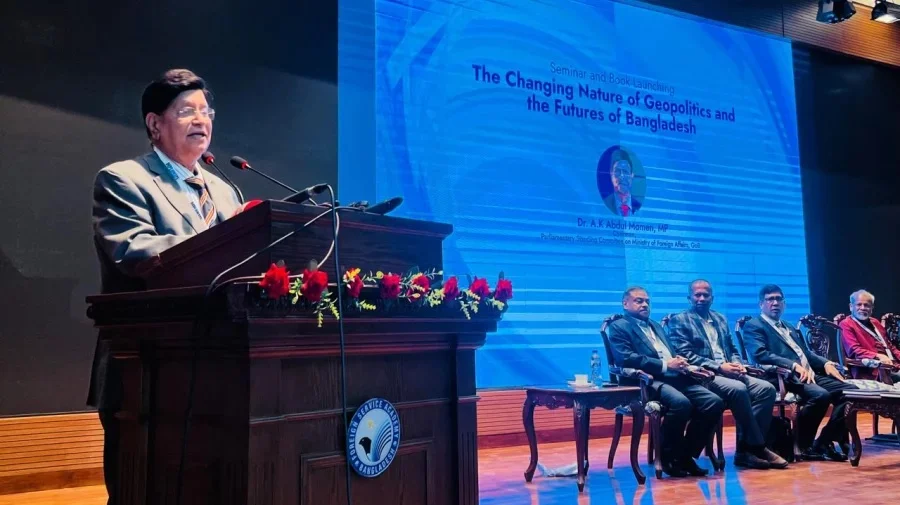'Bangladesh not ready for the new game of engagement'
Share on:

Bangladesh is one country in the world which has no enemy, Dr Imtiaz Ahmed says
Dr Imtiaz Ahmed, professor of international relations at Dhaka University, has said Bangladesh is not ready to deal with the "game of engagement" in the future "multiverse, multifocal and multi-layered" world.
Speaking at the unveiling of a book titled "The Changing Nature of Geopolitics and the Futures of Bangladesh,” he said Bangladesh has no enemy so far, but the future world will be "fluid multipolar," which will be difficult to deal with.
Chairman of the Parliamentary Standing Committee on Foreign Affairs and former foreign minister Dr AK Abdul Momen was present as the chief guest.
Dr Imtiaz Ahmed, also executive director of the Centre for Alternatives, edited the book.
He said the future will be a world which is "multiverse, multifocal and multi-layered. Any mathematical equation also will be very difficult.”
"Are we ready for it? Is the curriculum allowing us to do that? That is the question. And I definitely will say we are not ready for that," he said.
"But the good part is that there are technologies which can help us. It is important to connect the global world technologically. We should be connected with different countries of the world.
"It is possible now, unless we do that, if we remain, you know, as we remained in the 19th or 20th century, we cannot take the benefit of this particular century," he said.
He, however, said that Bangladesh is one country in the world which has no enemy, so far.
"And so it is a development without enmity. We are members of Saarc, Bimstec, BBIN, BCIM, Indo-Pacific Alliance, BRI…name anything we are ready to see."
For that, he, however, credited the civilizational roots of Bangalis welcoming foreigners.
"This is the civilizational context of being a Bangali. Even now, we welcome outsiders like anything. Some outsiders overstay. There is a problem. The British overstayed for 200 years," he quipped, referring to the British rule in the subcontinent.
Former foreign minister Dr Momen while discussing the book said when “we are talking of trade and other policies, one can look into the consumer or effective demand, domestic effective demand and how to design policy packages so that the domestic effective demand continues to grow, to give the economy a byproduct.”
He gave an example of the US and said the major income of the US comes from the domestic market, the consumer market.
"The contribution of the US government to GDP is around 21% and private sector contribution is around 70%, totalling 91%. So, 91% of GDP contribution, we say, comes from the consumer market. So it is an economy that runs with its own people.”
Even in India, he said, 70% of GDP comes from the private sector and 14% from government expenditure. “And in Bangladesh, the government sector is larger–it is 26% as per the estimates here.”
Former state minister for foreign affairs Abul Hasan Chowdhury and former principal officer of the Armed Forces Division Lt Gen (Retd) Mahfuzur Rahman was also present at the event, jointly organized by the Diplomats World magazine, FES Bangladesh and the Centre for Alternatives.

